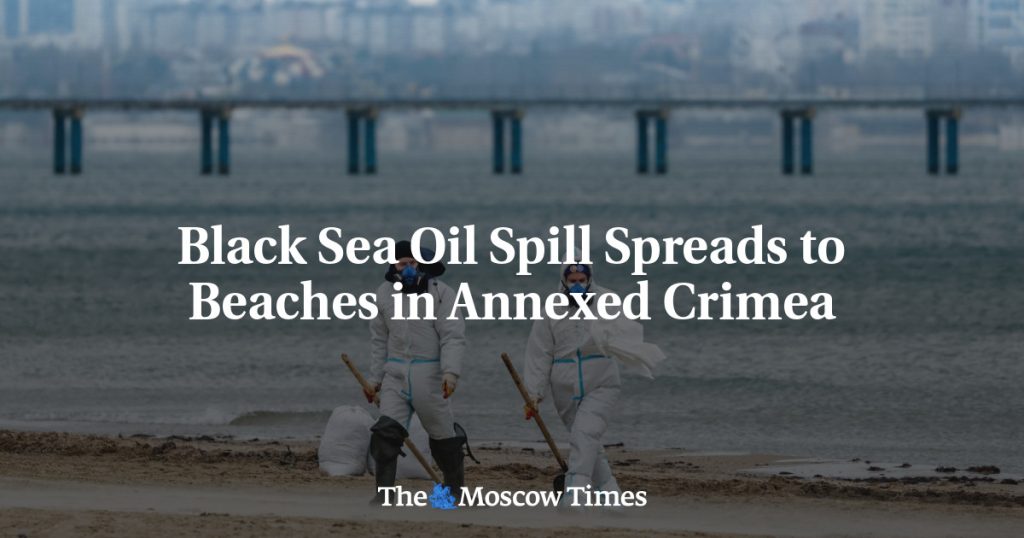Two damaged Russian tanker ships, the Volgoneft-212 and Volgoneft-239, spilled approximately 40% of their 9,200-ton cargo of heavy fuel oil into the sea after being struck by a storm in the Kerch Strait. The incident occurred near Crimea, which was annexed by Russia, and the Krasnodar region. The spill was described by Russian President Vladimir Putin as an “ecological disaster.” Oil from the tanker ships has been detected on beaches in Crimea, leading to concerns about the environmental impact of the spill.
The Russian Emergency Situations Ministry has reported two sites of oil product pollution in Crimea, near Kerch and further south by Tobechytske Lake. Cleanup efforts have been initiated to address the environmental fallout of the spill. Authorities have removed nearly 73,000 tons of oil-contaminated sand from beaches along the Russian coast, with an estimated total of 200,000 tons of polluted sand and soil. Volunteers in protective suits have been aiding in the cleanup operation by manually scooping oil-soaked sand in areas such as Anapa, a popular resort city.
As part of the cleanup efforts, 2,100 birds have been rescued by authorities. However, environmentalists and scientists have criticized the operation, citing inadequate equipment and methods being used. The spill has raised concerns about the impact on the local wildlife and ecosystem in the affected areas. Russian authorities are facing challenges in effectively addressing the environmental consequences of the tanker ships’ spill, with concerns about the long-term effects on the region’s biodiversity.
The oil spill highlights the need for improved safety measures in the shipping industry to prevent similar incidents in the future. The spill has raised questions about the environmental risks associated with oil transportation in sensitive marine ecosystems. Addressing the cleanup and environmental impact of the spill requires coordinated efforts from government agencies, environmental organizations, and volunteers. The incident serves as a reminder of the importance of responsible and sustainable practices in maritime transportation to prevent environmental disasters.
The spill has also prompted discussions about the regulation of oil transportation in the region and the enforcement of environmental protection laws. Measures may need to be implemented to prevent and mitigate the impact of future oil spills on the marine ecosystem and coastal areas. The incident underscores the interconnectedness of environmental issues and the need for cooperation at the local, national, and international levels to address environmental challenges. Efforts to address the aftermath of the oil spill in Crimea will require ongoing monitoring and remediation to minimize the long-term impact on the environment and wildlife.


